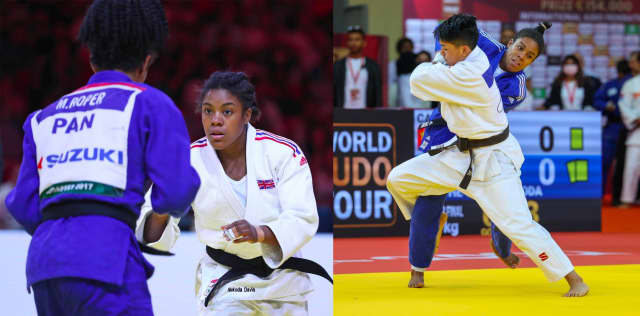From the moment we talk about weight categories, we imply that there may be changes in weight category. Some athletes who started their international career in one division decide one day to change and to go up or down. The examples are legion and we all remember the performances of Gévrise Emane (FRA) for example, world champion at -63kg and -70kg or more recently Lukas Krpalek (CZE), Olympic champion at -100kg and +100kg.
The reasons for these changes are multiple, each case is individual, but we can retain among the reasons: natural physiological evolution, the desire to stop dieting, the presence in the categories of a competitor from the same nation or just the desire to take on a new challenge.
Whatever the reason and the motivation to compete in a new category, this one implies profound changes. Sometimes, one can wonder what is our interest because ultimately what fundamental difference is there between a -73kg and 81kg judoka? There is actually a universe between them. All you have to do is look closely at athletes like Nikoloz Sherazadishvili to convince yourself that the change is not trivial.
Double world champion at -90kg, the Spaniard dominated his opponents with his head and legs but complying with big diets and remaining competitive through the years and eventually sacrificing physical and mental wellbeing was not viable in the long term. Yet, today Nikoloz is struggling. He has trouble finding his marks, trouble being consistent with his results, trouble quite simply because he has to relearn a new form of judo, a form where he no longer dominates his opponents physically and where his favourite techniques no longer seem to be as effective.
We can draw a perhaps even more obvious parallel with Daria Bilodid (UKR), double world champion at -48kg and an Olympic medallist, but who since Tokyo last year she decided not to line up in the next category, but two categories above. The change is drastic and the Ukrainian champion will need some time to adapt, naturally.
Already ten days ago, she was present in the final block of a world championships. She had to settle for a seventh place, not enough for her, but already extraordinary considering her rise to -57kg.

This weekend, Nikoloz and Daria are engaged in the Abu Dhabi Grand Slam and we will follow them closely. Their very natural difficulties today do not in any way taint their past results. On the contrary, we can admire them for their perseverance, their willingness to transcend difficulties and their incredible fighting spirit. To the challenge of becoming and being great champions, they chose to add the challenge of doing so in two different weight categories. In the same order of ideas and admiration, we could add the challenge of Kim Polling (NED) and Nekoda Davis (GBR), new mothers and also returning to the World Judo Tour in Abu Dhabi. We can also see that Clarisse Agbegnenou (FRA) has resumed training after giving birth a few months ago and now combines the life of a very high level competitor, stil awaited on the World Judo Tour, with that of a mother; just as much or even more demanding.
Our champions are not only holders of records and medals, they are above all champions in life.

